Huawei Mate XT vs iPhone 16: Why Huawei is leading in China
Lianhe Zaobao senior correspondent Chen Jing takes a look at how Huawei and Apple are releasing new phones on the same day, and how — despite being ahead in terms of publicity — Huawei is still slightly behind when it comes to functionality, especially outside of China.
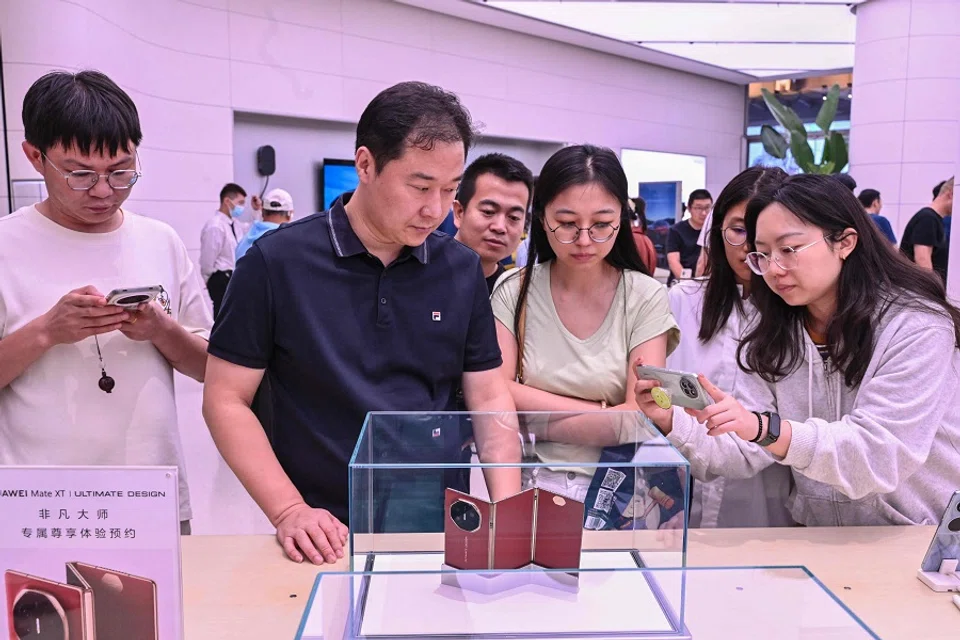
This time last year, the Huawei flagship store at Shanghai’s Nanjing Road was filled with customers nearly every day, with people queuing up three hours before opening, hoping to snag the brand new Mate 60 Pro smartphone.
This lively scene made the Apple flagship store across the street seem a tad quiet in contrast.
One year on, Apple and Huawei have chosen to release new phones on the same day. And from the reaction on Chinese social media platforms, Huawei is ahead.
As of 13 September, 5.8 million people have already pre-ordered the tri-fold Huawei. On second-hand sales platforms, the premium on this new smartphone at one point hit 80,000 RMB (US$11,277), compared to around 2,000 to 3,000 RMB for the first batch of Apple’s new iPhone 16.
Popularity vs functionality of Huawei
After the two smartphone giants released their new products respectively, the criticisms on the iPhone by Chinese netizens include comments like “the colours are ugly” and “there is nothing innovative”, while Huawei’s first tri-fold smartphone was billed as “a groundbreaking product” — even the high price was accepted by the netizens, with some saying self-deprecatingly that “the expensive price is not a problem with the phone, but a problem with me”.
A Chinese friend who recently went to France for studies bluntly said she would not buy a Huawei phone, noting that many functions are unavailable abroad. “You can’t even download WhatsApp,” she remarked.
... when I was on a trip to Tokyo with my friends, those who had Huawei phones also faced problems; they were unable to add transportation cards to their phones or download the Disneyland application.
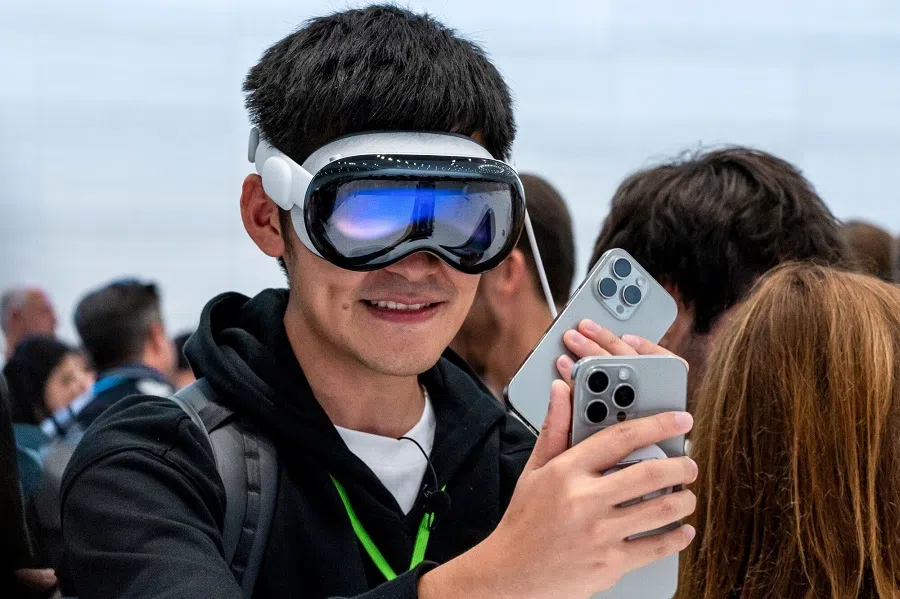
Last month when I was on a trip to Tokyo with my friends, those who had Huawei phones also faced problems; they were unable to add transportation cards to their phones or download the Disneyland application. Although it is possible to download overseas apps through special channels, they are often “cracked versions” lacking many functions, which significantly impacts the user experience.
Lacklustre sales globally, top tier within China
After parting ways with Google in 2019, the sale of Huawei phones overseas plummeted. Combined with US sanctions causing a “chip deficit”, Huawei almost disappeared from the smartphone market.
After the Mate 60 Pro was released last year, informed sources stated that Huawei had kicked off plans for a full-scale return to the global market. However, a year later, Huawei has yet to return to the top five brands for global smartphone sales, and is now listed under the “others” category.
... industry insiders felt that for the tri-fold smartphone which cost 19,999 RMB at its lowest price, the “flexing” was more symbolic...
But for the Chinese smartphone market, Huawei’s return has brought clear pressure to Apple. Even though Apple has been at the top of the list globally, its market share in the Chinese market has slipped from first place last year to sixth in Q2 2024, behind Vivo, OPPO, Honor, Huawei and Xiaomi, with the biggest competition coming from Huawei, which returned to the top tier this year.
However, even as the Mate XT is riding a huge wave, industry insiders felt that for the tri-fold smartphone which cost 19,999 RMB at its lowest price, the “flexing” was more symbolic, as it would not in the short term steal away potential iPhone users.
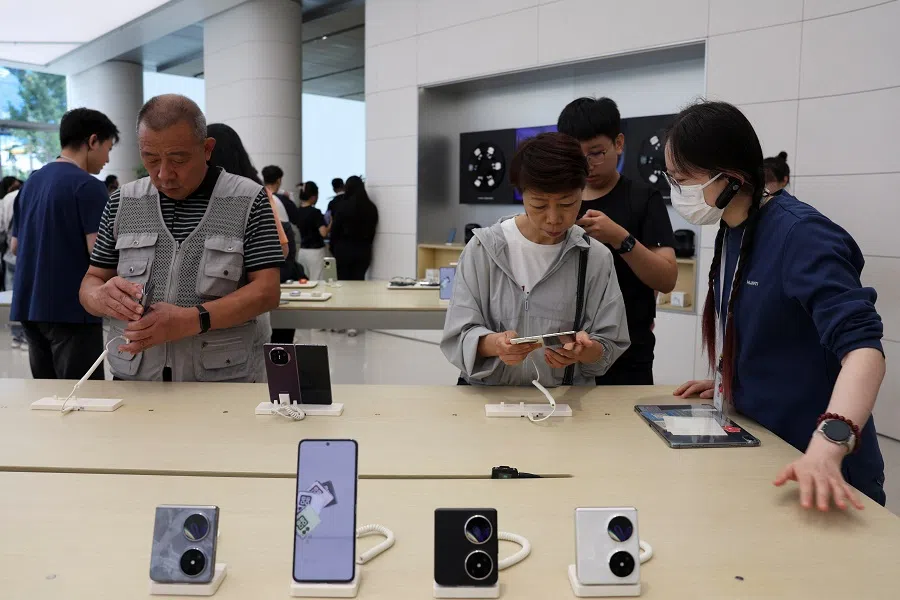
The problem is that the new generation of iPhones faces similar challenges to Huawei, including that its key selling points may not be available in the Chinese market.
... the new iPhone’s AI feature only supports the English version at the moment, with the Chinese version expected to launch next year. In China, where generative AI is strictly regulated, it remains unclear if this feature will be approved.
iPhone’s AI functions may not be available in China
Designed around artificial intelligence (AI), the iPhone 16 is Apple’s first AI phone. By partnering with OpenAI, Apple’s AI assistant can further enhance user experience. For example, users can simply point their phone camera at a restaurant and the phone automatically searches for reviews and menus, and can even help with reservations.
However, the new iPhone’s AI feature only supports the English version at the moment, with the Chinese version expected to launch next year. In China, where generative AI is strictly regulated, it remains unclear if this feature will be approved. Apple’s Chinese website specifically states that the launch of this feature is “subject to strict regulatory approval”.
Since last year, there have already been reports that Chinese civil servants and employees of state-owned enterprises are banned from using iPhones at work. On the eve of iPhone 16’s release, rumours were rampant that the phone might not support WeChat. Amid rising nationalist sentiments, some Chinese tech bloggers who attended Apple’s product launch event in the US were also accused of being “unpatriotic”.
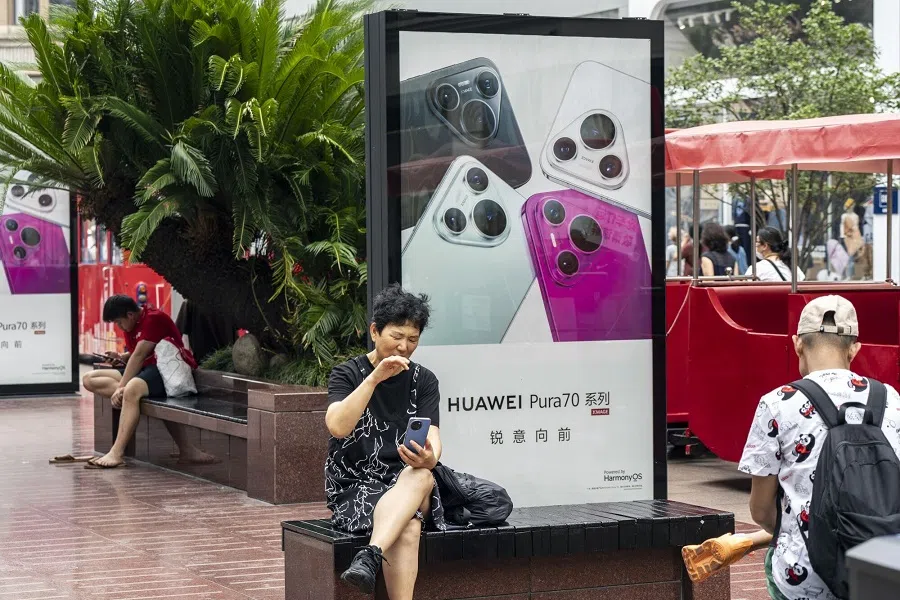
On the other hand, although Huawei has benefited from China’s massive market and rising support for domestic brands, its road back to the global market has been bumpy. Apart from the increased difficulty of entering the European and American markets, unresolved chip issues will continue to restrict the long-term development of Huawei phones.
Tech media reported that Huawei’s Mate XT tri-fold phone uses a 7-nm chip but the iPhone 16 is already using a 3-nm chip, giving it a significant performance advantage.
It is sad that as China-US competition becomes a long drawn conflict, both tech giants will have fewer opportunities to compete head on, leaving them to engage in indirect battles from their respective ends.
Indirect competition amid geopolitical environment
The intense rivalry and pursuit between Apple and Huawei is not only a microcosm of China-US competition but also the inevitable path of technological development. It is sad that as China-US competition becomes a long drawn conflict, both tech giants will have fewer opportunities to compete head on, leaving them to engage in indirect battles from their respective ends.
The possibility of Apple’s AI feature being restricted in China and Huawei’s tri-fold phone being unavailable in the US is not what consumers want, and is not in line with the principles of market competition. But amid escalating geopolitical tensions, this situation is expected to persist for some time.
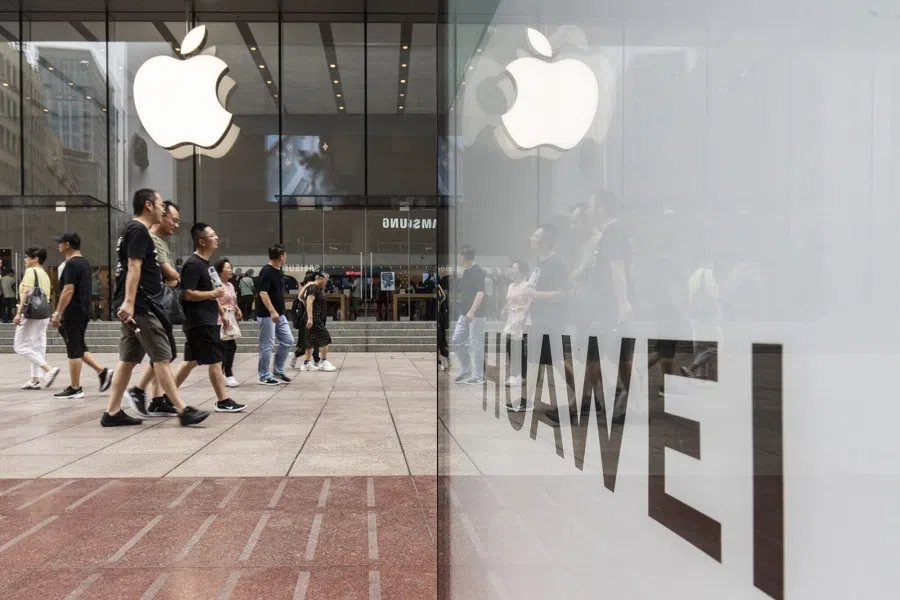
When I attended a Huawei event a few years ago, I saw Huawei employees using iPhones and asked out of curiosity, “Does the company not have a rule requiring employees to use only its own phones?” They replied, “Not at all.”
Huawei founder Ren Zhengfei never hid the fact that he is an “Apple fan”. In 2019, before 5G chips had become commonplace, he was even willing to sell Huawei’s 5G chips to the next generation of iPhones, winning widespread praise. I wonder if such things will happen again in the future?
This article was first published in Lianhe Zaobao as “华为与苹果的隔空交手”.





